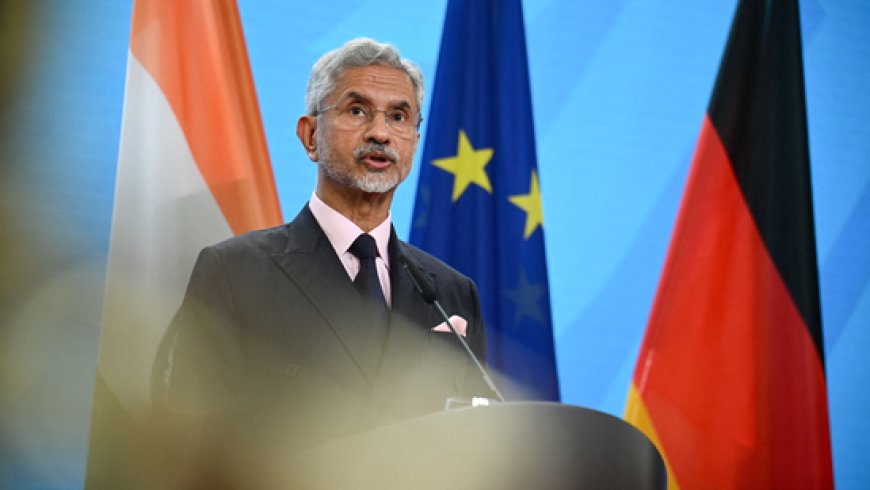India Rejects Nuclear Blackmail: Jaishankar's Firm Message to Pakistan from Germany
During his visit to Germany, External Affairs Minister S. Jaishankar emphasized India's unwavering stance against nuclear threats, asserting that India will not succumb to nuclear blackmail and will handle relations with Pakistan strictly on a bilateral basis.

In a bold and unambiguous statement from Berlin, Indian External Affairs Minister Dr. S. Jaishankar declared that India will “never give in to nuclear blackmail,” sending a powerful diplomatic message to Pakistan amidst ongoing tensions. Speaking at the India-Germany Strategic Forum, Jaishankar underscored India's resilience and strategic maturity in handling nuclear threats, while reaffirming New Delhi’s commitment to regional stability and national security.
Without directly naming Pakistan at the beginning, Jaishankar gradually addressed the long-standing issue of nuclear posturing in South Asia. “There are those in our neighbourhood who have consistently attempted to leverage the nuclear issue as a shield for cross-border terrorism and asymmetric warfare,” he said. “India has shown the world that it does not get intimidated by such tactics. We will not yield to nuclear blackmail.”
His remarks come in the backdrop of renewed provocations from Pakistan’s political and military leadership, with some officials hinting at the "deterrent potential" of their nuclear arsenal in response to India's conventional military dominance. This rhetoric, however, was met with sharp criticism and concern from the international community, particularly given the fragile peace in the subcontinent.
“Responsible nuclear states do not weaponize uncertainty. They do not threaten global peace through irresponsible language or reckless doctrines,” Jaishankar asserted, drawing attention to India’s long-standing policy of 'No First Use' and a credible minimum deterrence strategy. “Our nuclear doctrine is rooted in restraint, but restraint should never be mistaken for weakness.”
Jaishankar’s message also aimed at rallying support from India’s global partners, including Germany, with whom India shares a robust strategic and technological relationship. The forum, attended by key European and Indian officials, diplomats, and analysts, focused on global security challenges, climate cooperation, and democratic partnerships.
“We must stand united against forces that believe in coercion over dialogue, terrorism over diplomacy, and conflict over peace,” Jaishankar added, calling on the global community to recognize and act against state-sponsored terrorism.
The Indian minister’s statements were widely covered by German and international media, highlighting growing concern over the potential escalation in South Asia. Analysts noted that India’s firm yet measured approach aligns with its image as a responsible power on the global stage.
Meanwhile, India continues to bolster its diplomatic outreach and defense preparedness. Sources from the Ministry of External Affairs confirmed that several bilateral and multilateral engagements are underway to ensure that India’s position on regional security is well-understood by the global community.
Jaishankar concluded his address by reinforcing India’s commitment to peace and stability but emphasized that sovereignty and security are non-negotiable. “India’s voice will remain strong, our stance unwavering. We are a nation that seeks peace, but we are never afraid to protect our interests.”
As South Asia navigates another chapter of tense rhetoric, India’s message from Berlin makes one thing clear: nuclear threats will not bend the will of a confident and capable India.
What's Your Reaction?




























































